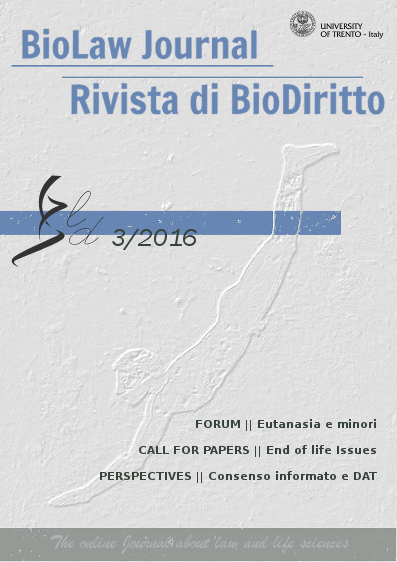Law and 'the right to die': Filling a reservoir with an eye-dropper
DOI:
https://doi.org/10.15168/2284-4503-182Parole chiave:
Right to die, Death as a Taboo, Rights and Change of Ethos, Individualism, ChoiceAbstract
If we considered the assortment of cases that, mainly in America and Europe, raised along the years "right to die" claims, the task would frankly not turn out as the easiest: the collection would go from a PVS patient lying for years in a hospital ward to a person diagnosed with a fatal disease requesting a prescription for barbiturates, passing through a quadriplegic affected by a neurodegenerative syndrome, a cronic depressed, an inmate sentenced for having horribly raped and murdered a few women asking for euthanasia to avoid repeating his crimes once out of prison (practically, a self-inflicted death penalty), elderly spouses scared of loneliness if one outlived the other to the point of preferring to die together when they are still reasonably healthy, deaf-born twins resoluted to die together as they lived inseparably, minors dying of an incurable disease, a woman too bothered by the natural decay of body and mind to stand the old age. What would be the core, the intrinsic nature combining all these somehow extreme, though real, calls?
Our civilization is markedly determined to remove the idea of death, to obliterate it from every public forum. Death is erased – from our houses, from our discourses, from our life – and we do not have a common emotional and cultural vocabulary to cope with it. Eternity has moved back in the popular consciousness, while longevity has come to the fore. In "right to die" claims, then, law is asked to provide something for which it is fatally ill-equipped: to be a comfort to our mortality. Emptying the public, also the private impoverishes in lack of communal and political thinking. Law is asked to fill the void – which is a task as impracticable and inane as filling a reservoir with an eye-dropper.





